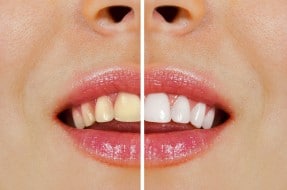Call now on0800 051 8069
The Dangers of Illegal Tooth Whitening
-
A blog considering the dangers of illegal tooth whitening and the GDC response to this.
Tooth whitening, a procedure in which teeth are bleached to make them lighter, has become increasingly popular over the past few years. The legal position on tooth whitening in the UK is that it involves the practice of dentistry and therefore can only be performed by registered dental care professionals. [1]
Alongside the rise in the popularity of the procedure, there has also been a rise in the number of illegal tooth whitening procedures carried out by unqualified and unregistered individuals.
When carried out by a regulated professional and using clinically proven methods, tooth whitening is a relatively safe, yet complicated procedure. However, individuals who carry out tooth whitening illegally are often untrained and the methods are completely unregulated, meaning that overly strong (and therefore illegal) bleach can be applied. As a result, there is a greater risk of the following:
- Burning and blistering of the gums and lips
- Permanent tooth and gum damage
- Ingestion of chemicals
The General Dental Council (GDC) is an organisation which regulates dental professionals in the UK and promotes public protection. Every dentist and dental care professional in the UK must be registered with them. They are cracking down on illegal tooth whitening and have prosecuted several individuals recently.
In one case in December 2016, a man from Salford was found guilty of illegal tooth whitening and was given an 18-month conditional discharge and was ordered to pay £3,000 costs to the GDC. [2] There are many examples of these type of cases over the past three months, with some victims unfortunately suffering permanent damage, including tooth loss.
Anyone contemplating tooth whitening should consider that it is a potentially risky procedure that should be undertaken by a qualified and registered dental professional. Therefore, it is best to first consult the GDC’s online list of registered practitioners.
[1] GDC v Jamous (2013)
[2] GDC v Longbotton (2016)







